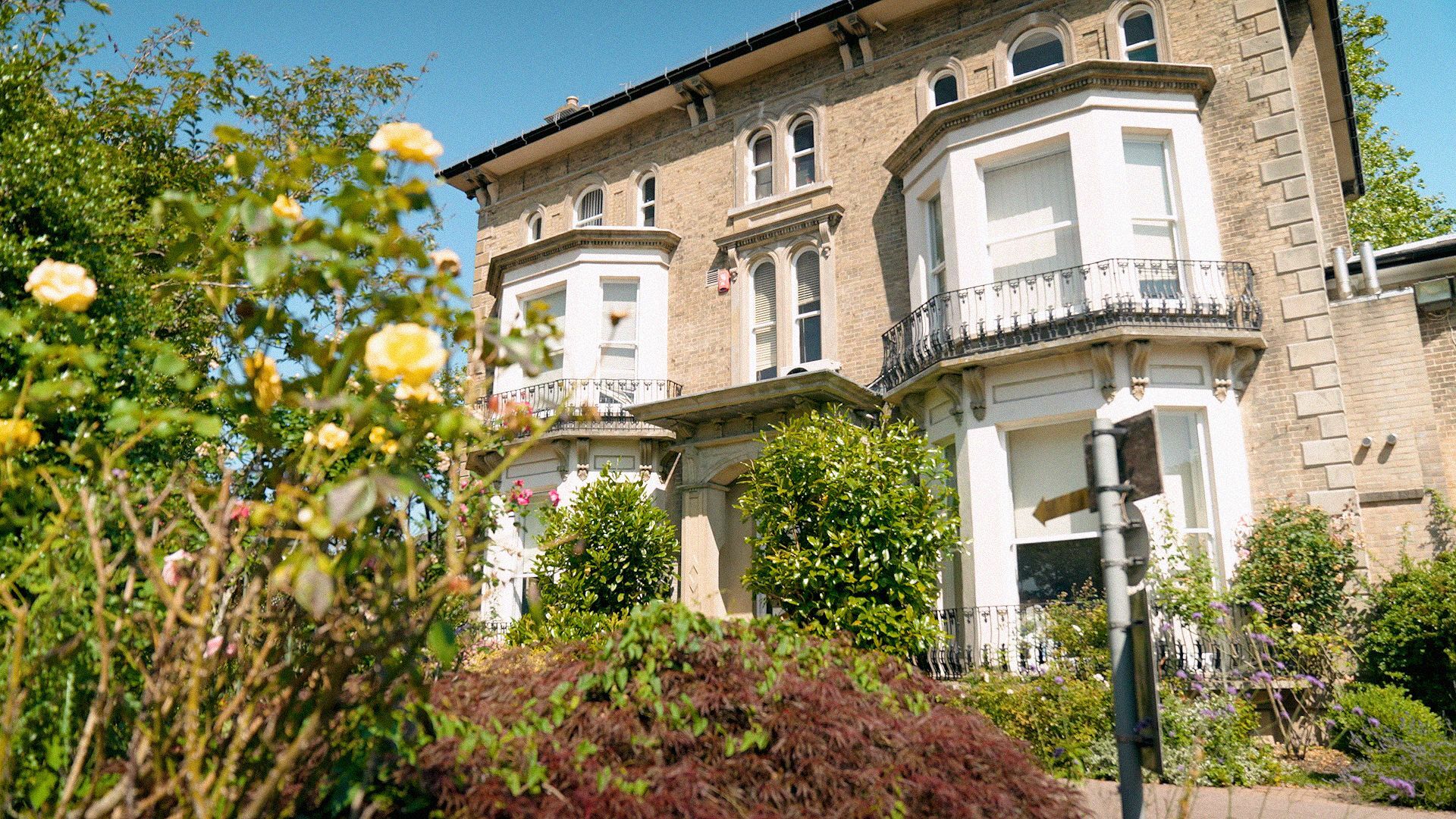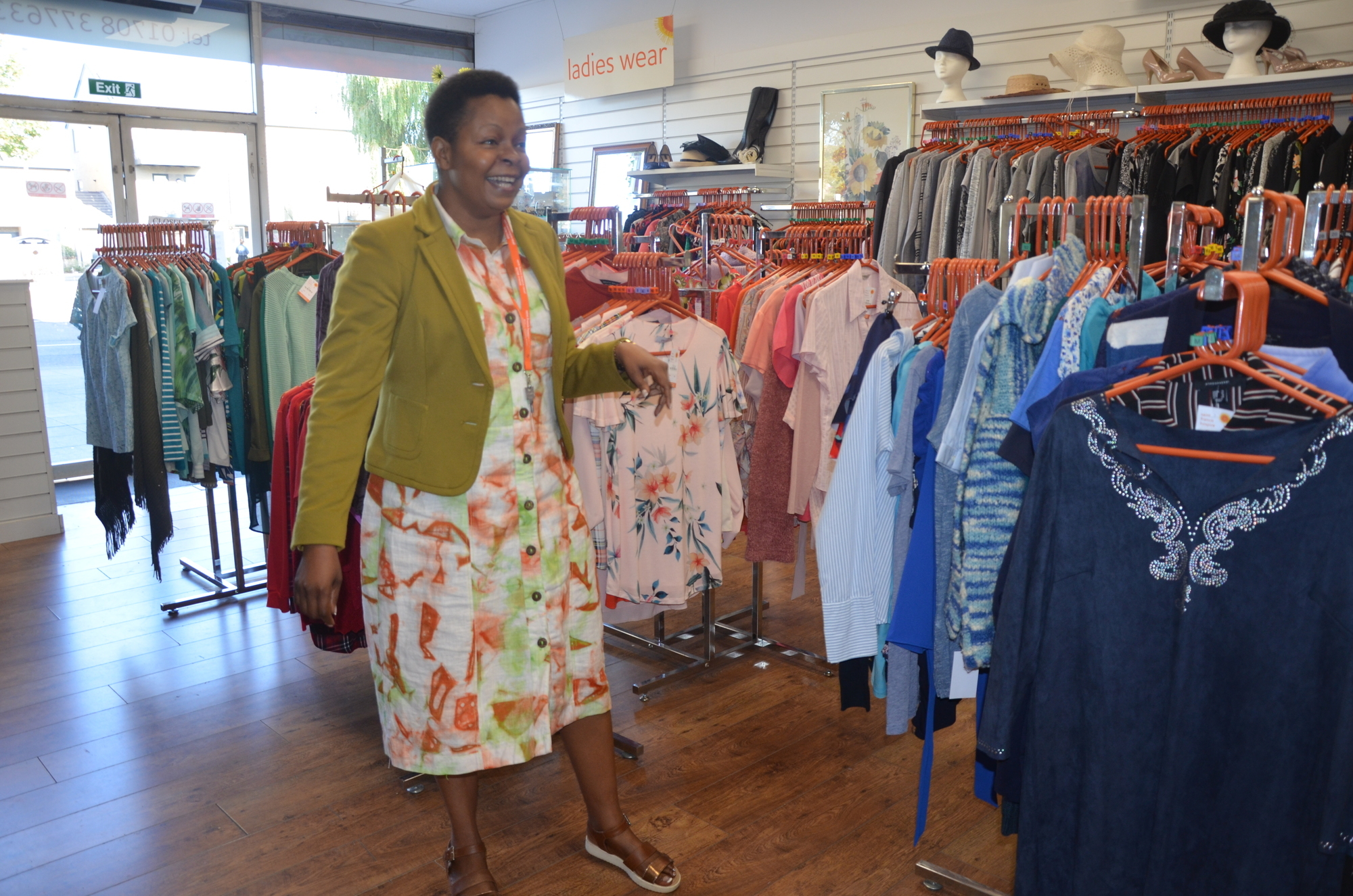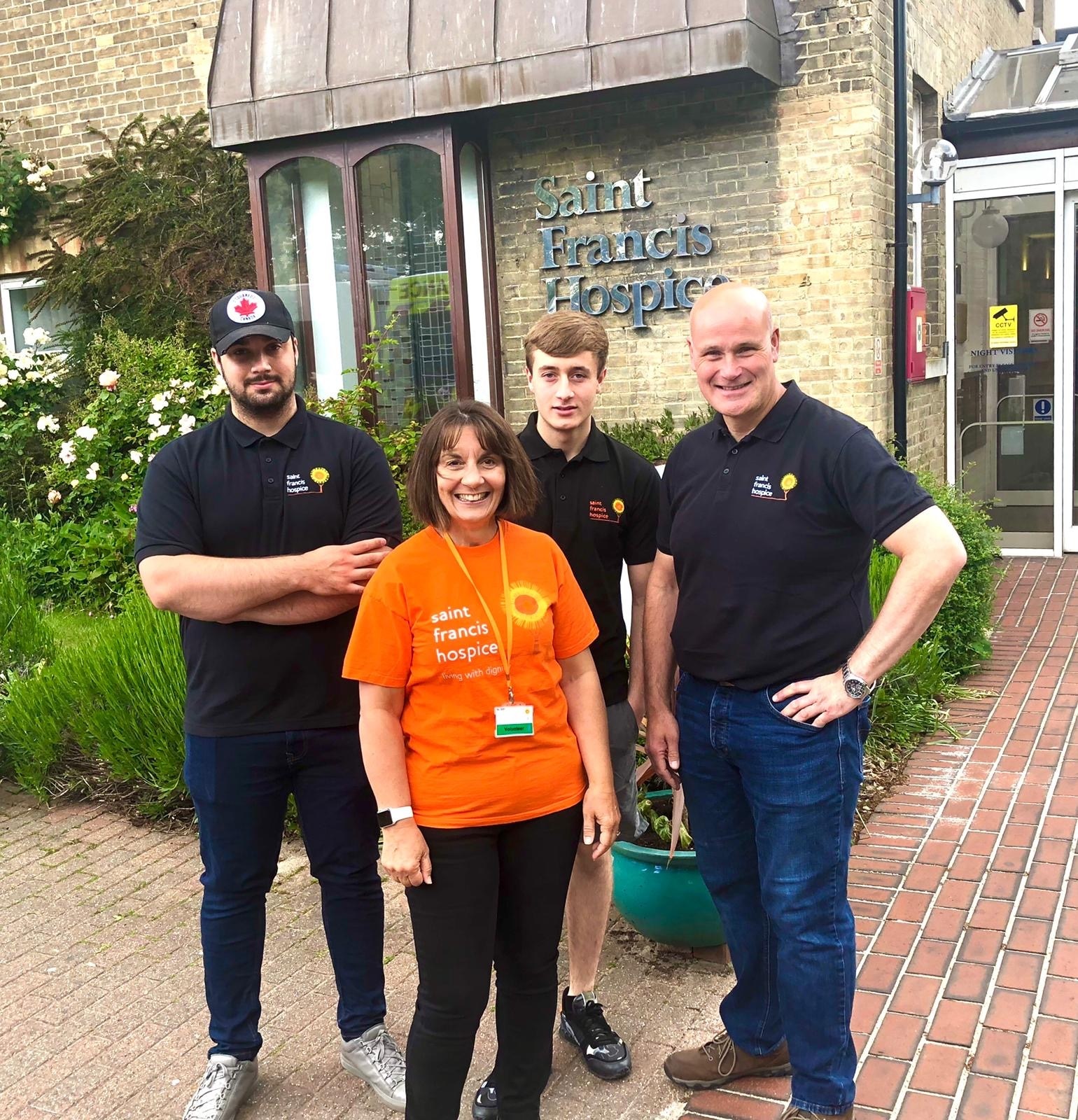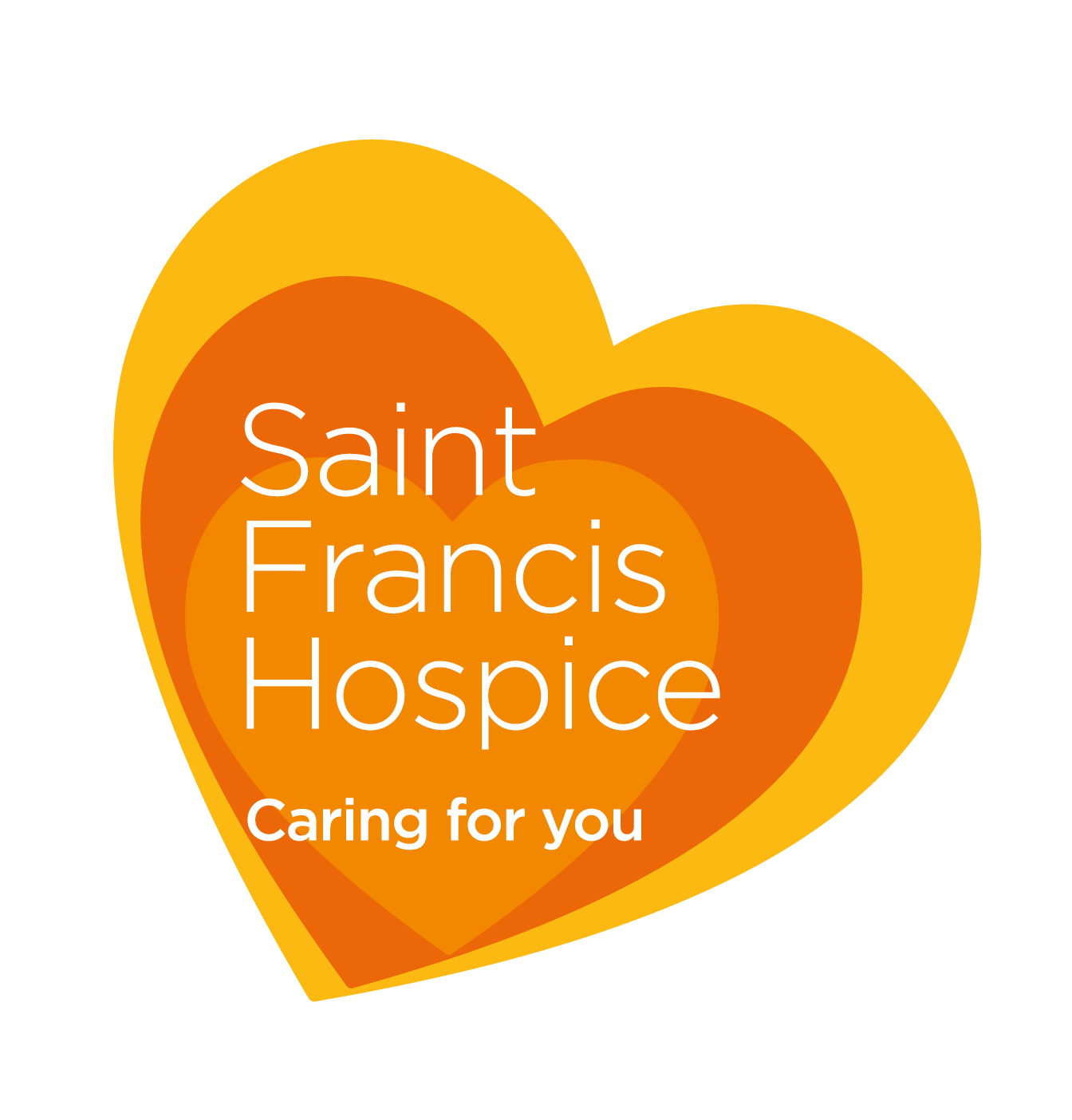Saint Francis Hospice Celebrates 40 Years of Caring for its Community

Saint Francis Hospice’s mission - to provide local people with excellent palliative and end-of-life care - has never changed since it opened its doors on 23 July 1984.
As the hospice celebrates 40 years of caring for its community, we look at how far the hospice has come in the past four decades.
“Saint Francis Hospice has been on an incredible journey over the past 40 years and achieved so much,” said Grazina Berry, CEO at Saint Francis Hospice.
“Thanks to the determination and dedication of local people and everyone who has played a part in our history, thousands of people have received the best holistic care and support, before, during and after death.
"We want to continue to support people in every part of our community to live and die well, and to empower them to choose when and where they are cared for.”
In the first year of opening, 208 people were cared for on the ward. Since then, we have developed and expanded our services to provide even more expert care to people with incurable illnesses, both at the hospice and in the community. We are there to care for their families too.
Here are some key figures from the past 12 months of 2023/2024 to illustrate the impact of our care on people from our catchment areas of Havering, Barking and Dagenham, Redbridge, Brentwood and parts of West Essex:
- We cared for a total of 2,000 people across our wide-ranging services.
- 359 people were admitted to the ward. 37% of people had a non-cancer primary diagnosis. Many were admitted for pain management control, and 29% were discharged home.
- 1,238 people were cared for by our specialist team of community nurses in their home or care home, to help them manage their pain and symptoms. They also made a total of 14,777 face-to-face and telephone consultations.
- Hospice at Home made 4,897 home visits to 639 people.
- Physiotherapists provided 2,445 sessions to support people with assessment of movement and function and advise ways to improve and remain safe with appropriate aids.
- Complementary therapists provided 1,142 sessions of aromatherapy, reflexology, mindfulness, massage, reiki and distance reiki.
- Occupational therapists provided 1,175 sessions, supporting people with physical, sensory and cognitive issues to regain independence. This includes assessment and supply of equipment needed to support people at home.
- 618 adults and 87 children received bereavement counselling from our Child and Family Therapists.
- Our Pastoral care team supported 614 people.
- OrangeLine, our confidential telephone helpline supported 614 people, making and receiving 2,626 telephone calls and 831 face to face activities. The service is available to anyone in the community who requires emotional support, or people feeling lonely and isolated.
“There will always be a need for hospice care,” said Grazina.
“As we look to the future, we are upgrading our ward to ensure our care environment gives people and their loved ones even more comfort and dignity.”
Watch our 40 Years of Saint Francis Hospice teaser:
Our Volunteers
Volunteers have always been at the heart of the hospice. We currently have 655 volunteers who help in every area of the organisation, from its shops, the ward, and fundraising to its gardens, care teams, and offices.
Our dedicated volunteers save the hospice at least £1m every year in salaries as they give the precious gift of their time, skills and experience to help people and their families at the most difficult time in their lives.
Fundraising
Fundraising remains a significant challenge. As a charity, we receive a third of our funding from the NHS and need to raise the rest, some £8.5m through donations, fundraising events and activities alongside the sale of donated goods, to cover our running costs. Currently, one in five people are cared for thanks to people leaving a gift in their will.
“Saint Francis Hospice wouldn’t be here without our incredible supporters,” said Grazina.
“On behalf of everyone here at Saint Francis Hospice, thank you to everyone who has played a part in our 40-year history and who continue to support us so we can be here for the next 40 years you are all amazing."
History of Saint Francis Hospice
Saint Francis Hospice’s story begins on 7th July 1975 when specialist care for people who were dying or in need of palliative care didn’t exist.
At a meeting organised Havering Community Health Council, a forum for health-related issues relating to local hospitals and the needs of the local community, a spark was lit that led to the opening of Saint Francis Hospice nine years later in 1984.
During the meeting Eddie Doran, a local man from Romford, stood up and asked,
“What about care for the dying? Are we really giving people in our hospitals the care they need at the end of their lives? Isn’t it time we had our own hospice?”
Other members of the community spoke up about the need for a service that would give people the comfort, care and support they needed at the end of their life.
Joan Matthews
Joan Matthews, who was working for the NHS at the time, and recognised the need for a more holistic approach to end of life care, was also present.
Before the end of the meeting, Joan was on the working party that was formed and became a key figure in ensuring the hospice became a reality.
The time was right for change and while still in its infancy, the modern hospice movement, led by Cicely Saunders, a nurse, social worker and doctor, was growing fast.
Fundraising for the new hospice
There was incredible support for a new hospice and fundraising started with three £5 notes donated by Joan Matthews, Peter Smith and Dr Dorothy Rule who were all part of the hospice project.
There was a huge response following an appeal for volunteers to help fundraise. They became known as ‘Friends of Saint Francis Hospice’ and were dedicated to raising funds for the new hospice.
To organise fundraising in local areas, four regional branches were set up and the volunteer fundraisers raised money in a variety of ways including dinners, sponsored events, organising concerts, fayres.
They were so successful that by the start of 1982, over £350,000 was raised thanks to their remarkable efforts.
In May 1979, The Hall, an imposing 19th century mansion with a sizable plot of land in Havering-atte-Bower, was purchased for £108,000.
Saint Francis Hospice Opens
Building work officially started in July 1982. On 23rd July 1984, the first person was admitted to the ward.
In the first 12 months, 208 people, 123 woman and 85 men, whose ages ranged from 12 to 94 years (we now care for people aged 18 years and over) were cared for.
The hospice put a holistic approach into daily practice as the care team looked after every aspect of a person’s needs.
In November 1985, the late HRH Prince Philip, Duke of Edinburgh, made a private visit to Saint Francis Hospice and met with people on the ward and their families.
The Covid-19 Pandemic
The Covid-19 pandemic in March 2020 brought challenges the hospice has never seen but through it all, Saint Francis Hospice remained open. By adapting our services, it was able to continue safely caring for people and their families.
Measures were put in place so people could still visit their loved ones as the hospice believes no one should be alone at the end of their life.
Demand for services increased as people were fearful of going to hospital. The care teams responded by making more visits to people in their homes and helped to avoid unnecessary hospital admissions.
The charity also developed its counselling service so it could still support people over the telephone or Zoom. It was even able to offer a bereavement helpline for people who had lost loved ones to the covid virus.
Digital transformation
The pandemic accelerated a digital transformation. Microsoft Teams and other digital applications have enabled the hospice to improve communication between care teams at the hospice and in the community. By saving time and resource, the hospice has been able to care and support more people than ever.
The Shops
Our services are free to access for people when they need them but there is a huge cost to running our extensive care and support services. Our shops have always generated vital income to fund the charity, while raising awareness of hospice care.
The very first Saint Francis Hospice shop was opened in Westcliff-on-Sea, in 1981 and a second shop opened 3 years later in 1984 selling furniture. We now have 15 shops across our catchment area, and we also sell donated goods online via eBay and Preloved.
A timeline of how our services developed
1985 - 1994
In April 1985, work began on a home care service, with the pay for two nurses funded by a Trust. There was a huge demand for their work and 28 visits were made in the first month alone.
An occupational therapy service was introduced that same year, and the bereavement service began in 1986.
While a day service was introduced in 1988, building work began on a dedicated facility (later renamed Pemberton Place), which opened in 1993.
1995 - 2003
With demand for community nursing ever increasing, fundraising began for the Hospice at Home team in 2000. The aim was to provide nurses dedicated to caring for people in their homes in the last few days of their lives.
2003 - 2009
Thanks to a generous donation from local resident Elsie Pepperell, plans were set in motion for the creation of the Education Centre in 2005.
The Pepperell Education Centre was completed in 2008 and continues to provide teaching to health and social care professionals and carers via courses and study days, organising a broad ranging education programme that encompasses both specialist palliative care delivery and topics of wider interest.
2010 - Present
In 2014, the 24/7, 365 days a year Specialist Crisis and Community Support service was established. The team provided enhanced support to people under our care, their families and carers, along with health and social professionals.
OrangeLine, our telephone lifeline for people who are isolated, lonely or bereaved, was launched in 2016. The group went on to develop many groups such as Tea and Talk at Toby's to help people living with serious illnesses and their families.


















































